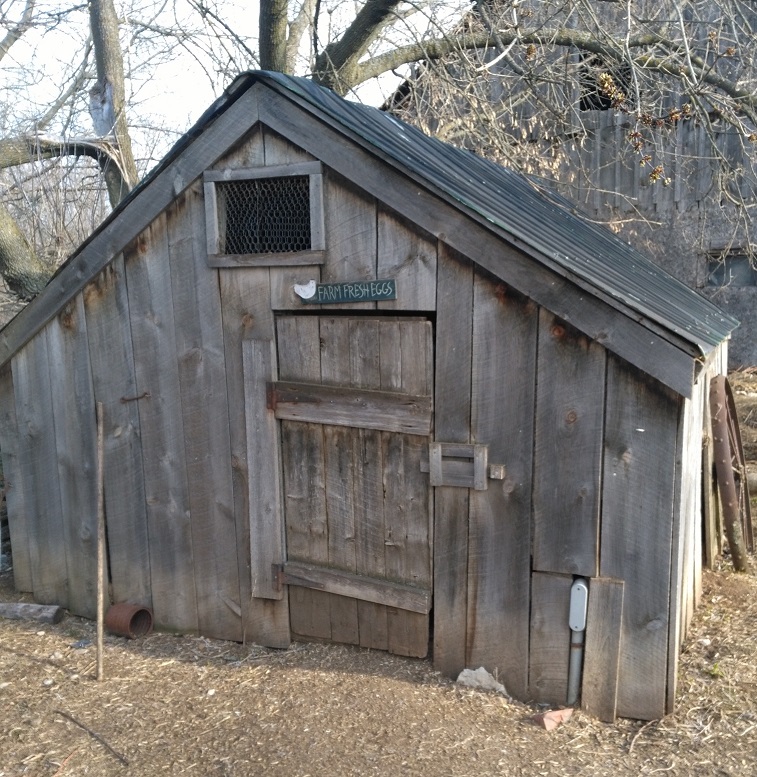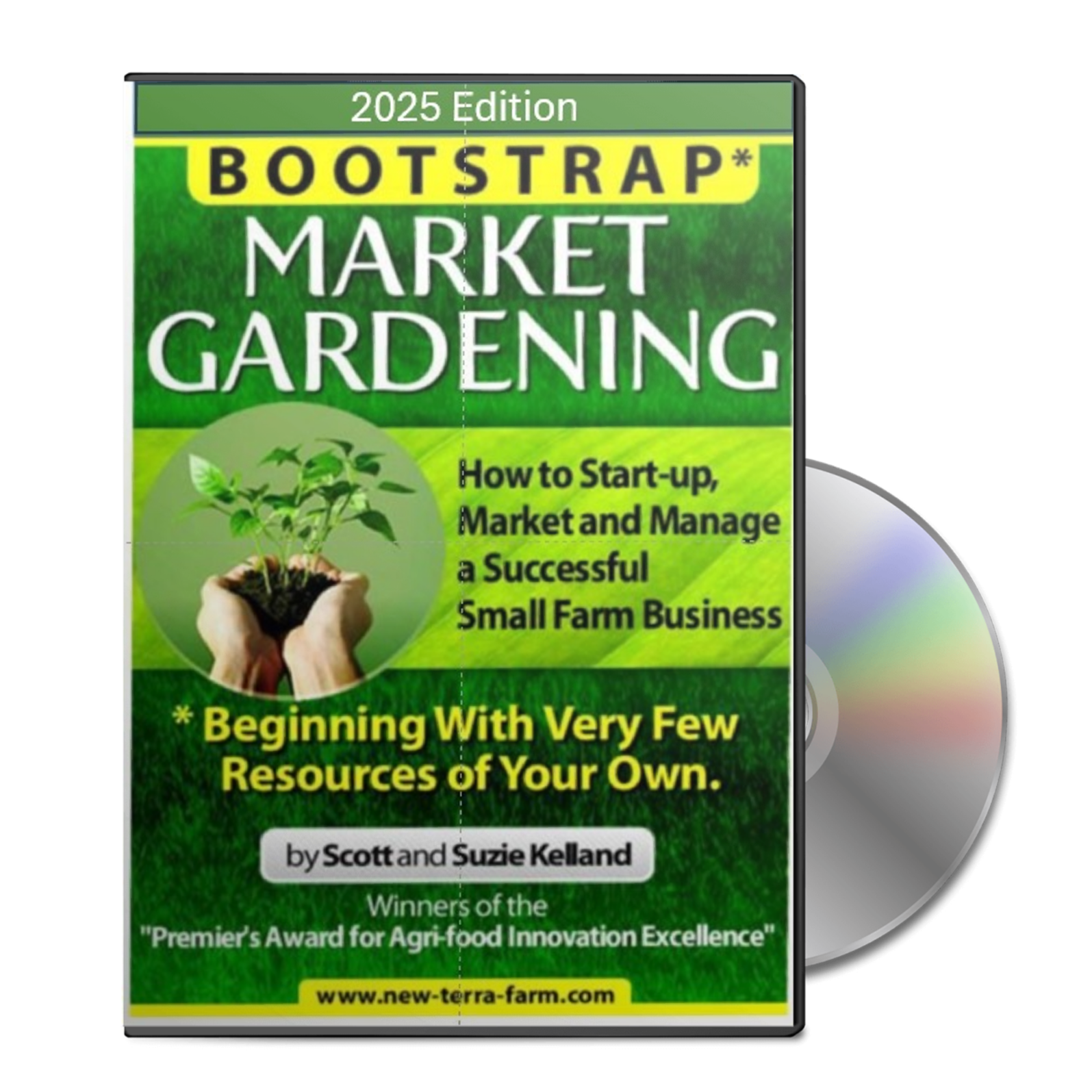Some Tips for Living the Country LifeI've been living the country life on New Terra Farm for 20 years. I've learned quite a bit about that topic over that time, so I thought would pass along some of that experience.
These tips are based on my experience and are not backed up by much in the way of research; but they are true for me.
1. Be a good neighbour. When you move in, make it a point to get to know the neighbours. Drop by, introduce yourself, and (perhaps) ask their advice about some aspect of the neighbourhood. This will help you get 'plugged in' to the local network. This might be the most important tip to living the country life 2. Don't let pets run loose. On the topic of being good neighbour, DO NOT let your dog run loose onto a neighbour's property. Even the calmest dog can turn predator when given the opportunity to chase sheep or chickens. Country etiquette says the farmer has every right to shoot the dog, no warning needed. So save Rover, keep him in an enclosed yard or tied. 3. Don't tear down buildings. When you get your farm there may be a couple UGLY outbuildings standing on it. . We have an ugly chicken coop that we have been planning to tear down for 10 years, but each year it turns out to be useful. My advice is wait at least a year before you schedule them for demolition; it's amazing how useful some of those ugly buildings may turn out to be.  We eventually covered our ugly coop with some rough cut pine to pretty it up We eventually covered our ugly coop with some rough cut pine to pretty it up4. Don't build permanent for at least a year. By the same token, don't be in a hurry to put up permanent structures. You don't know yet how your farm will evolve. I recommend living there for at least 4 seasons before investing in major construction. 5. Build fences first. While I generally recommend against doing major changes the first year, the exception to this is perimeter fencing. Fields are pretty much useless for grazing unless you have good fences to contain your animals. So, perimeter fences are one of the first things to build, and good fences make good neighbours (see Point 2.) 6. Function over form. By and large, getting it built is more important than getting it pretty. We have some ugly constructions here on the farm, a couple of which I'm responsible for. But, the chickens don't care that the coop is not painted, and the pigs don't care that their hut is made mostly out of scrap wood and metal. They do the job. I've seen plans for building chicken coops that include fancy roof vents and window trim; the cost per square foot would be comparable to building a small garage. My movable chicken coop cost me $150, and has been working fine for 7 or 8 years. It's not pretty, but then again I'm not trying out for House Beautiful. 7. Calm is the key. Speaking of livestock, when you are working with farm animals attitude is everything. Animals sense when you are stressed or angry, and they will behave in ways to make you more so. Calm, slow and gentle is the way to approach farm livestock. When something goes wrong, its rarely the animal's fault. 8. Don't start with breeding stock. There is a learning curve with any farm enterprise, including raising animals I strongly recommend you DON'T start with breeding stock. If you want to eventually breed hogs, buy a couple weaners the first year and learn how to care for them. The same is true of cattle or chickens. Buy the babies and learn how raise 'em profitably before taking on breeding. 9. Don't raise just one of anything. Livestock animals live in herds and flocks. They like the company of their own kind. Raise at least two of every animal; they will be happier and will do better for you than a lone animal. 10. Build multiple streams of income. Don't put all your eggs in one basket; in other words, don't expect a single farm enterprise to carry you through the year. Build multiple complementary farm product streams. For example, we currently raise organic veggies in our market garden , meat chickens and pigs on pasture . We are branching out into bedding plants, honey, and organic fruit. I sell books and make money from my farm web-site Future plans include on-farm workshops and tours. With good planning you could integrate up to 10 separate income streams on your little farm, without needing much additional infrastructure or land. Then even if one failed completely, you would still be at 90% productivity. BONUS TIP to living the country lifeDon't do anything just for the money. While building multiple income streams, try to remember why you chose living the country life in the first place. Don't create a business that is 'drudgery' or that violates your principles just for the money. You've had enough crappy jobs, right? Do what interests and excites you, and find a way to make it pay. That's really living the country life.  Now includes Garden Planner software Now includes Garden Planner softwareBootstrap Market Gardening, my first Bootstrap Book, shows you step-by-step how to start-up, market and manage an organic market garden based on CSA principles. New edition includes my Garden Planner spreadsheet. Get Bootstrap Market Gardening only from New Terra Farm. Or get Bootstrap Market Gardening as part of my Complete Start Farming Pack and save 60%.
Recent Articles
|


